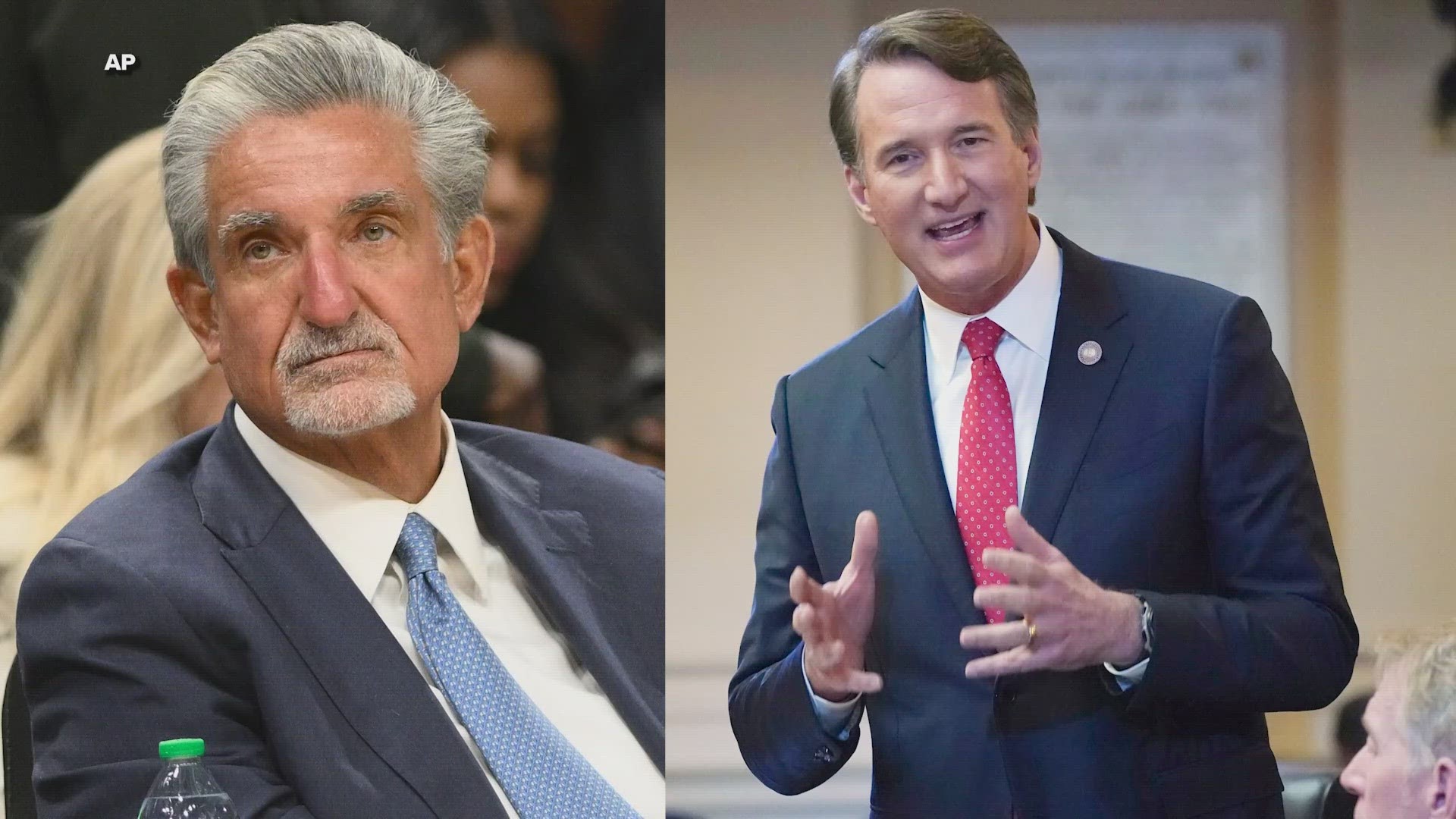ALEXANDRIA, Va. — Washington Capitals and Wizards owner Ted Leonsis's fight to get approval for his proposed $2 billion arena project in Alexandria could go down to the wire in the state legislature.
Now, Monumental Executives have laid out their plan to go around those opponents, to get the funding package passed.
“We’re not going to give up,” said Monumental Chief Administrative Officer Monica Dixon.
The arena proposal continues to absorb blows from outspoken opponents in the state senate, including Senator Louise Lucas from Portsmouth. Lucas has led the charge, often on social media, to kill Monumental owner Leonsis and Governor Glenn Youngkin’s $2 billion project in Alexandria’s Potomac Yard.
About $1 billion of the financing would come from state-backed bonds to be repaid by tax revenue from the proposed arena.
“We’re not going to let billionaires build their fortunes on the backs of taxpayer dollars,” Lucas said in a video posted to her X account.
Lucas single-handedly defeated the stand-alone arena bill in the Senate, when she twice refused to give the bill a hearing in the finance committee, which she chairs.
On Friday, Dixon said this is all part of the negotiating process in Richmond and Dixon said there are signs of encouragement.
“What happened in the house was critical,” Dixon said.
What happened Thursday in the Virginia House of Delegates was an overwhelming and bi-partisan passage of the House’s version of the state budget, 81-18. The House budget includes the arena funding plan.
That means even if Lucas is successful in keeping the arena out of the budget passed by the Senate, the differing budget bills head to what’s called a “conference committee.”
A conference committee is made up of a small, powerful bi-partisan group of five to six Delegates and seven to eight Senators who come together to negotiate the differences in the two budget bills. That would include the arena deal.
As finance chair, Lucas appoints the members of the Senate conference committee. Senate majority leader Scott Surovell, who represents parts of Fairfax County, told WUSA9 Lucas could stack the conference committee with other Senators who oppose the arena proposal, ensuring its defeat.
"The conference committee is where political power is most often wielded," Surovell said.
The conference committee version of the budget would still have to be approved by both sides of the legislature before being sent to Governor Youngkin, who can either sign it, amend it, veto the entire budget, or specific items within the budget. Surovell, who said "I'm not an opponent of having a discussion" on the arena plan, said Youngkin could also send back a budget amendment or call a special session to try to push the arena plan forward, even if it's stripped from the budget initially.
Arena opponents are already gearing up to lobby members of the conference committee to side with Lucas.
“Our mission as a coalition, and my mission is to talk to those legislators and people who are going to be making those important decisions in the waning hours of the session,” said John Breyault of the Coalition to Stop the Potomac Yard Arena. “Help them understand the impact that this deal will have on folks in the entire state, but particularly Arlington and Alexandria, and the numbers that they've been fed by stadium opponents are incredibly suspect."
Representatives from Monumental are gearing up to convince members of that conference committees just the opposite. The economic projections are sound, including estimates from a study commissioned by the city of Alexandria the new arena would generate $12 billion in economic impact.
“Our strategy is to continue doing what we're doing, which is give the legislators all the information they need,” Dixon said. “We believe that they will have all the reports on the economic opportunity and the jobs that this project will create at their fingertips while they're in committee and considering it.”
“We're available for any additional information or questions they might have, as they go through the process.”
But Dixon said reducing the size of the funding package is not on the table.
“The proposal that the MEI committee reviewed and voted for unanimously encompassed all aspects of this project,” said Dixon, referring to the state’s Major Employment and Investment Project Approval Commission. “We do not support any deviation from what the MEI committee has already voted to endorse and support.”
The conference committee must come to a consensus on the arena question before the legislative session ends March 9.
Before then, Dixon said Monumental also hopes to overcome concerns raised by key labor unions, including the AFL-CIO, which came out against the arena project this week.
The proposed arena project would bring 30,000 jobs to the area, but the concern from the unions is what exactly those jobs would look like.
Dixon said she was surprised by organized labor's stand.
"We were very close to an agreement," Dixon said of the unions. "And I think there's still a chance we could get folks back to the table. We hope so. We were very close to having a signed agreement. And so I have to have hope that that they'll come back. And we can get there."

